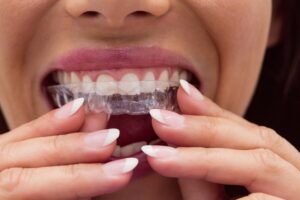TMJ conditions can be complex and can cause pain. Orthodontic treatment like braces is considered an effective treatment by some people for TMJ-related disorders, but it is important to understand the interconnection between orthodontics and TMJ dysfunction. Both braces and Invisalign can affect the balance of the jaw, teeth, TMJs, and chewing muscles.
Orthodontic treatments help at some point in reducing some of the symptoms of TMJ, but they can also cause TMJ issues. That’s where an expert TMJ practitioner comes in! A professional orthodontist is the one who can help you figure out if braces are the right option for you to ease your TMJ issues or if there’s another orthodontic treatment option that’ll work even better!
What is Temporomandibular Joint (TMJ) Disorder?
The TMJ is the little joint that connects your lower jaw, or the mandible bone, to the skull’s temporal bone just near your ears. It is the most important because it enables one to do important functions such as talking, chewing, and—yes—yawning.
So, it is the joint, which permits the receipt of the up and down and side to side as well as a little forward and backward movement. Sometimes people may experience some problems with their TMJ called TMJ disorder. It is the condition when the joint that connects the jaw to the skull starts acting up. These may cause pain and discomfort, popping or cracking sounds, and even make it hard to chew food or open your mouth wide.
In some cases, TMD is quite a mystery because it’s not always possible to explain why it may occur. It could be as a result of forcefully grinding our teeth, clenching the jaws, or even a physical injury. Fortunately, people can try to manage TMD by using ice packs, taking pain-relieving drugs, or even doing jaw exercises. However, the condition can be worse sometimes, so it is important to consult with a dentist for better treatment.
What Are the Symptoms of TMJ Disorder?
People have different issues. That’s why the TMD symptoms vary among patients. Some common symptoms are:
- Pain and discomfort in the jaw
- Headaches, neck, and sometimes shoulder pain
- The softness or tenderness in the face or jaw
- Jaw muscle stiffness
- Mouths from which the upper and lower jaws cannot be opened or closed.
- Difficulty or painful chewing
- Earaches, or ringing in the ears, also known as tinnitus
- Difficulty of an individual to open the mouth wide
- The alteration in how upper and lower teeth fit with each other
- Swelling on the jaw and sides of the face
- Radiating pain in the jaw, neck, or face
- Tooth pain or sensitivity
- Popping, grating, or clicking sounds when a person opens or closes the mouth

What are the Common Causes of TMJ Pain?
TMD has numerous underlying causes, so trying to identify the exact cause of the disorder can at times be very difficult. Some of the common dental experts, like TMJ specialists, dentists, orthodontists, or ENT doctors, can go further to conduct X-rays, CT scans, or MRIs to determine the condition of the jaw. Commonly identified causes of TMD include:
- Injury or trauma to the jaw and the joint that requires treatment
- Disc displacement within the joint
- Teeth grinding, also referred to as jaw clenching or bruxism
- Erosion or failure of the joint after each day
- Abnormal bites or poorly aligned teeth or jaws
- Structural jaw abnormalities existing right from birth
- Temporomandibular joint arthritis
- Gaps, shifts, or crowded teeth that change the position and alignment of the jawline
- Stress in many instances results in activities that put pressure on the jaw
How Much Can Braces Fix TMJ?
Well, there is no clear answer to this question. Sometimes orthodontic treatment is useful because it resolves the misalignment of the bite, such as an overbite or underbite that may have a contribution to the TMJ disorder. However, one would also like to note that braces are far from being the universal remedy for TMJ issues!
Sometimes other kinds of therapies, such as mouthguards or physical therapy, can be more helpful. If you assume that your TMJ dysfunction might be due to a misaligned bite or teeth, then you should discuss this issue with your dentist or orthodontist. They will be able to tell you whether braces can work for you in a specific situation or not!
Treatment Options for TMJ Disorders
TMD treatments are specific and depend on a person’s particular needs and mouth situation. There are some common treatment options for TMJ disorders that include:
Homecare Routine: One should prioritize jaw rest by choosing a soft diet, avoiding big bites, and refraining from gum chewing to eliminate TMJ pain. For more severe pain, you can use cold compression, while for a soft, constant ache, using warm compression can be helpful. Gentle TMJ workouts and movements should also be affected for pain reduction, to strengthen chewing muscles, and to improve joint mobility.
TMJ Appliances: TMJ appliances can be prescribed by a dentist or an orthodontist. There are several TMJ appliances in the market today, but not all of them may be appropriate for you. Night guards can act as shields against the force of grinding, especially when TMD occurs from bruxism. TMJ splints can be beneficial for positioning the joints of the jaw to reduce pressure and enhance the healing process.
Stress Minimization: As stress can worsen the TMD, relaxing procedures such as deep breathing, meditation, yoga, or even therapy help to reduce stress.
Recommended Medications: In severe TMD cases, doctors may recommend anti-inflammatory drugs, certain antidepressants, or muscle relaxants.
Injections for Pain: Joint pain and inflammation can be resolved by corticosteroid injections. Another advantage of using BOTOX injections is to prevent jaw muscle contraction because it can reduce TMJ pains.
Physiotherapy: It includes therapies such as moist heat or cold therapies, ultrasound, and some muscle and joint strengthening and stretching exercises.
Orthodontic Treatment: Although TMJ disorders are not treated by orthodontic treatment such as Invisalign or braces, specific dental problems such as crossbites or open bites are corrected by these orthodontic treatments to reduce stress on the TMJs.
Surgery: In a few cases when non-surgical procedures fail to provide relief and the symptoms are really serious, then surgery may be considered. It is important to estimate probabilities of positive outcomes and negative consequences because surgery is irreversible.
People should seek the help of TMJ professionals to determine which suitable course of action should be taken for TMD.
Want to Fix Your TMJ Disorder? An Orthodontist Can Help!
Celebrate Dental is the best way to achieve the healthy smile of your dreams! If you want a comfortable orthodontic service or have any concerns about TMJ dysfunction, don’t hesitate to connect with us anytime. Our professional dental team is always available to help you maintain sparkling oral health. Don’t wait!







